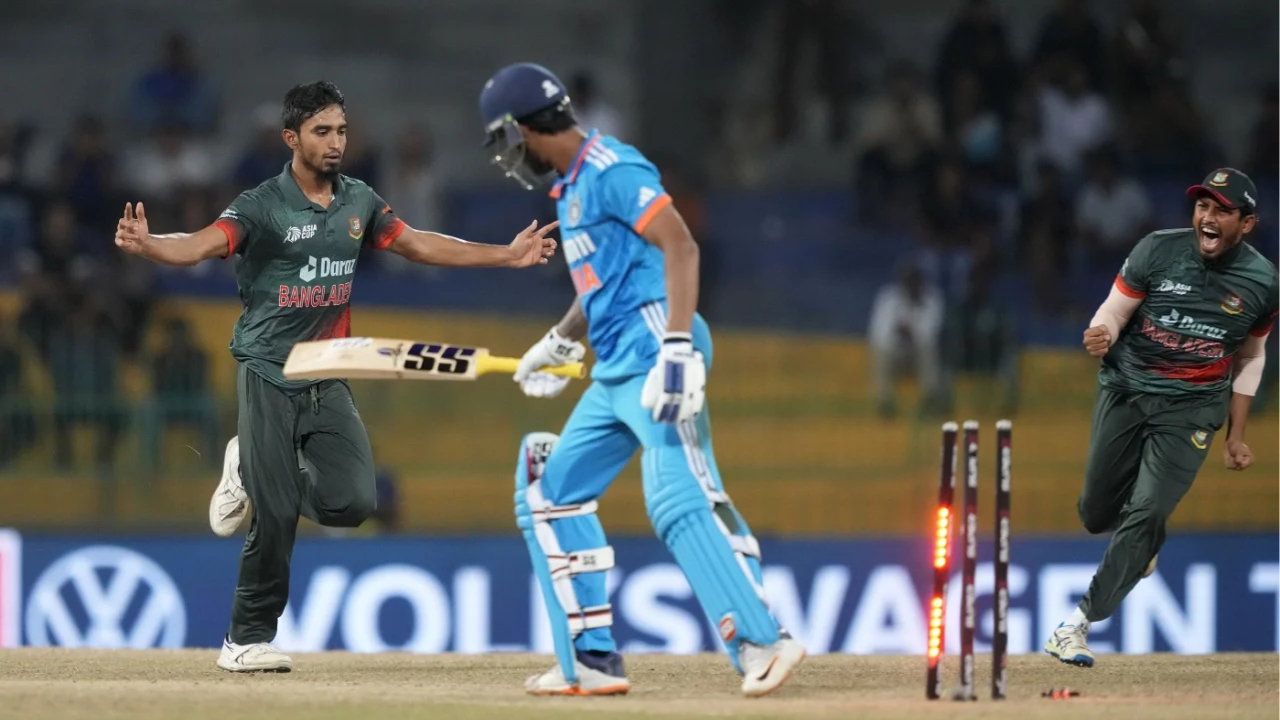With the way India finished the power play tonight against Bangladesh in their Asia Cup 2025 Super 4 fixture, no one would have guessed that the Men in Blue would fail to cross the 200 mark in the first innings. But in the end, a middle order collapse meant that India finished the innings with just 168/5 on the board.
Also Read: Suryakumar Yadav continues struggling in T20Is in 2025
To put it in perspective, in the first 11 overs of the innings, India made 112 runs and lost only 2 wickets. In the next 9 overs, the Men in Blue could only manage 56 runs. The 6 overs after Abhishek Sharma's dismissal in particular were extremely poor. From over 12 to 17, India managed just 27 runs for the loss of 2 wickets. If not for the initial fireworks from Abhishek Sharma, who keeps on shining in his relatively young T20I career, and then a crucial rescue job by Hardik Pandya, who was dismissed in the last over for a well-made 38, India would be staring at a total around the 130-run mark at best.
Suryakumar Yadav, Shivam Dube, Axar Patel, and Tilak Varma all flopped on the night, with none of them scoring above 10 runs, and none of them scored at a strike rate higher than 100. The problem, however, might not be with the ones who couldn't make a mark tonight, but with the way they come out to bat.
While flexibility in the batting order is always a welcome sign, too much flexibility can hurt the batting team. And that seems to be the case with Team India. Shivam Dube walked out to bat at number 3 tonight, ahead of proven T20I top-order batsmen like Sanju Samson, Suryakumar Yadav, Hardik Pandya and Tilak Varma. While the thought process behind such decisions may be different, this ended up hurting India.
In the long run, having a definite batting order with each batter knowing the role he plays for the team will prove to be most beneficial to the team. With the amount of talent they possess, a middle-order collapse can be easily avoided in the future.

